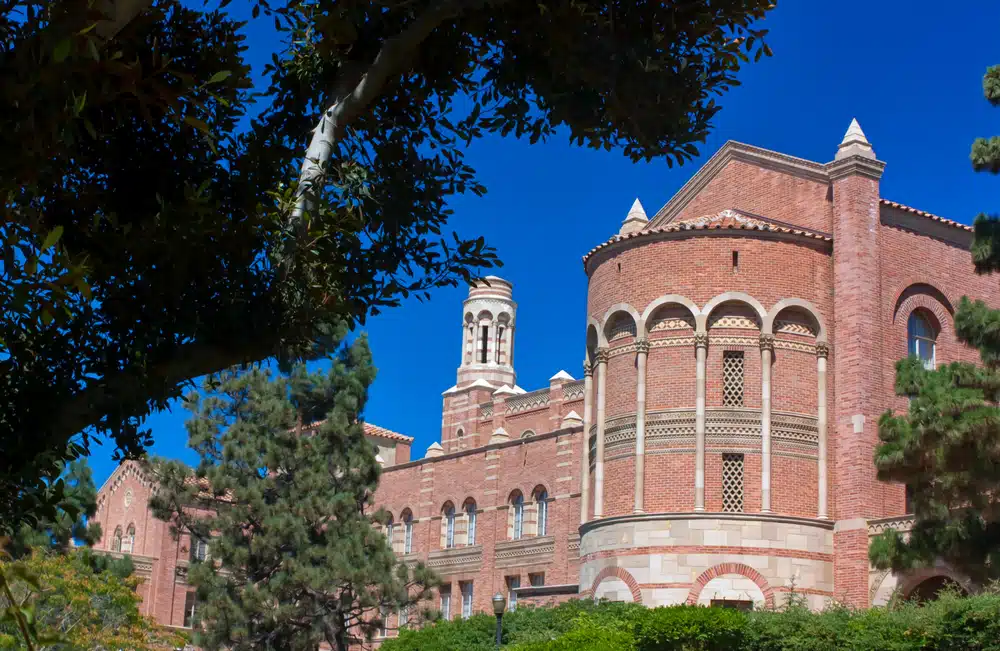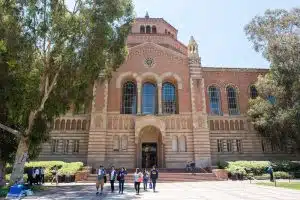What are the Best Majors at UCLA?
What are the best majors at UCLA? At the University of California, Los Angeles (UCLA), students have a plethora of choices to tailor their educational journey to their unique needs and pinpoint the ideal academic direction. More than 250 different programs are available to students at UCLA, all of which are instructed by faculty members who are knowledgeable and student-centered. You will be equipped with the knowledge, experiences, and opportunities necessary to delve deeper into your areas of interest.
For undergraduates aiming for a bachelor’s degree, UCLA offers 125 majors and 90 minors. Meanwhile, graduate students keen on master’s or doctoral studies can choose from 120 programs. Regardless of your level, UCLA is glad to help you find the program that aligns with your aspirations.
While selecting the perfect major at UCLA can be challenging for some, the university eases this process with workshops for incoming students unsure about their academic path. Students are given guidance during these sessions about the selection of majors, the design of their course schedules, and the comprehension of the criteria for graduation. This allows the students to consider a number of possibilities before settling on one.
The following are some of the best majors being offered at UCLA:
Sociology
Sociologists delve into the structure, movements, and outcomes of social life. This discipline covers a vast spectrum, mirroring the diverse facets of social existence. By examining social connections, institutions, entire societies, and various societal groups, sociologists aim to understand social dynamics. Their research tools include field observations, interviews, analyzing historical records, scrutinizing census information, and conducting extensive surveys. Sociology offers deep insights into the societal forces shaping our lives and opportunities. Grasping these processes, what C.W. Mills termed the “sociological imagination,” is essential for navigating our complex world both personally and professionally.
Biology
Biology majors at UCLA can customize their studies by integrating courses from several departments within the biological and physical sciences. This major suits students wanting a holistic scientific view or those eyeing careers in medicine or related health professions.
Psychology
Psychology at UCLA is framed as a science, methodically probing human and animal behavior, spanning from the norm to abnormalities. This discipline considers diverse factors, from neural and cognitive processes to individual variations and societal contexts. The undergraduate curriculum reflects psychology’s vast scope, yet also allows deeper exploration into areas of particular interest.
Mathematics
This program is tailored for those drawn to the theoretical sides of mathematics. Often, pure mathematicians further their studies with advanced degrees, gearing up for research or academic roles at tertiary institutions.
Economics
Economics majors at UCLA dive into society’s production and consumption mechanisms and dissect pressing issues like international trade, poverty, taxation, crime, and education. Through rigorous theoretical and practical methodologies, students gain a lens to understand individual actions and motivations. Upon completion, they’re equipped for roles across sectors, from government and finance to consultancy and accounting.
Physical Sciences
Physics seeks the fundamental principles underpinning our universe. This all-encompassing science aids in understanding our material world, with physicists probing diverse phenomena, from cosmic mysteries to molecular interactions. With its vast purview, physics forms the foundation for all scientific endeavors. UCLA’s Physics and Astronomy department offers specialized study in areas like condensed matter, particle physics, biophysics, and more.
Public Affairs
The Public Affairs undergraduate program melds rigorous academic learning with public service values. It combines analytical skills, methodologies from social sciences, and hands-on experience, bridging theoretical concepts with practical applications. The curriculum benefits from UCLA Luskin’s robust resources in Public Policy, Social Welfare, and Urban Planning.
Linguistics
Linguistics aims to decode the origin, structure, and evolution of human language. Resembling disciplines like philosophy and cognitive psychology, linguistics emphasizes theoretical understanding over language proficiency. While studying diverse languages deepens insights into linguistic universals, profound explorations of a single language can also be rewarding. Thus, linguistics courses often draw examples from commonly studied languages like English and prominent European ones.
Ultimately, UCLA offers a diverse range of majors, each catering to various interests and academic pursuits. From the profound inquiries of sociologists into societal structures to the intricate study of human and animal behavior in psychology, from the theoretical depths of mathematics to the tangible impacts of public affairs, each field promises robust academic foundations and real-world applications.
What stands out at UCLA isn’t just the sheer variety of majors available, but the depth and breadth of study within each discipline. The “best” major is subjective and largely depends on individual passions, career goals, and areas of interest. However, irrespective of choice, students are guaranteed a comprehensive education that equips them with the tools needed for success in our increasingly complex and interconnected world.
How Do You Decide on Your Major?
Deciding on a major at UCLA, or any institution for that matter, can be a daunting task. It’s a decision that can influence your future career, personal interests, and overall academic experience. Here’s a more detailed guide on how to decide on your major at UCLA:
Self-assessment
Begin with introspection. Understand your strengths, weaknesses, passions, and dislikes. What topics or activities excite you? What can you envision yourself doing in the next 5, 10, or even 20 years?
Consider taking a career assessment test. These can provide insights into fields aligning with your personality and strengths.
Research the Majors Offered
Delve into the UCLA course catalog. Familiarize yourself with the requirements, course offerings, and objectives of potential majors.
Understand the potential career paths each major can lead to. Some majors have direct professional trajectories, while others offer a broader academic foundation that can be applied in numerous fields.
Speak with Advisors and Faculty
Academic advisors can provide guidance on course requirements, potential combinations (like double majors or minors), and the academic rigors of each field.
Faculty members, especially those in your areas of interest, can offer insights into the discipline, its research opportunities, and its real-world applications.
Engage in Extracurricular Activities
Join clubs, organizations, or student groups related to potential majors. This will give you a hands-on feel of the discipline outside the classroom.
Engaging in internships or research projects can provide practical experience and clarify if a field truly resonates with you.
Consider Future Prospects
Look into the potential job markets, salary ranges, and job satisfaction in careers related to the major.
If you’re considering graduate studies, understand how the undergraduate major prepares you for further specialization.
Speak with Upperclassmen and Alumni
Interacting with students who’ve been through the process can provide valuable insights. They can share their experiences, the challenges they faced, and how they overcame decision-making hurdles.
Alumni can offer a long-term perspective on how the major benefited them and the opportunities it opened up.
Stay Open-minded
It’s okay to start as “undecided.” Many students enter university without a fixed major in mind. This can be an advantage as it allows you to explore multiple disciplines before settling.
Remember, it’s possible to change your major. While it’s beneficial to decide early for planning purposes, it’s vital to choose a field that genuinely aligns with your aspirations.
Reflect on Personal Circumstances
Financial constraints, family obligations, or other personal situations might influence your choice. Consider how long the program lasts, if there are scholarship opportunities, or if the major requires costly materials.
Reevaluate and Confirm
Once you’ve narrowed down your choices, reevaluate your decision. Imagine yourself in classes, working on projects, and ultimately in a related career. Does it feel right?
Ultimately, deciding on a major is a combination of self-awareness, research, and seeking guidance. At a diverse institution like UCLA, there’s a myriad of opportunities, ensuring that every student can find a field of study that aligns with their passion and future aspirations.
What are Your Chances of Getting Into UCLA?
Gaining admission to UCLA is notably challenging compared to other institutions. Each year, the University of California, Los Angeles consistently tops the list for the highest number of applications in the U.S.
The absence of SAT or ACT score requirements has led to increased applications to the University of California System. The average GPA of UCLA’s incoming freshmen rose to 4.5 after completing approximately 52 college preparatory terms, of which 23 were Advanced Placement (AP) courses. While securing admission to UCLA is tough, it’s not impossible.
In 2021, out of 108,877 applicants, only 15,602 were admitted, reflecting a 14.3% acceptance rate. This marked a decline from the 16.3% acceptance rate in 2020. Notably, UCLA does not offer early action or early decision admissions. Although its acceptance rate is notably low, the strength of your application can increase your chances of being considered more favorably than other candidates.
After the application deadline, UCLA’s admissions team embarks on a comprehensive review process. This means they evaluate an applicant’s entire profile, not just academic achievements.
UCLA assesses applicants based on thirteen distinct criteria encompassing both quantitative and qualitative measures, personal and academic milestones, and the opportunities available to the student. Different admissions team members scrutinize Every application at least twice, after which a holistic rank is assigned. UCLA is on the lookout for candidates exhibiting leadership, resilience, intellectual curiosity, and initiative.
To distinguish yourself among the applicant pool, stellar grades, and impressive AP exam scores are beneficial. However, aligning your values with UCLA’s and showcasing them is equally crucial. Involvement in extracurricular activities, particularly those highlighting attributes like resilience, creativity, and leadership, can make a difference. Moreover, providing thoughtful and in-depth answers to the personal insight questions can further enhance your application.
If you need help choosing among the best majors offered at UCLA or if you need help putting the finishing touches on your college applications, at AdmissionSight, we have over 10 years of experience guiding students through the competitive admissions process.
AdmissionSight can help you put your best foot forward when applying to college this fall. Contact us today for more information on our services.








































